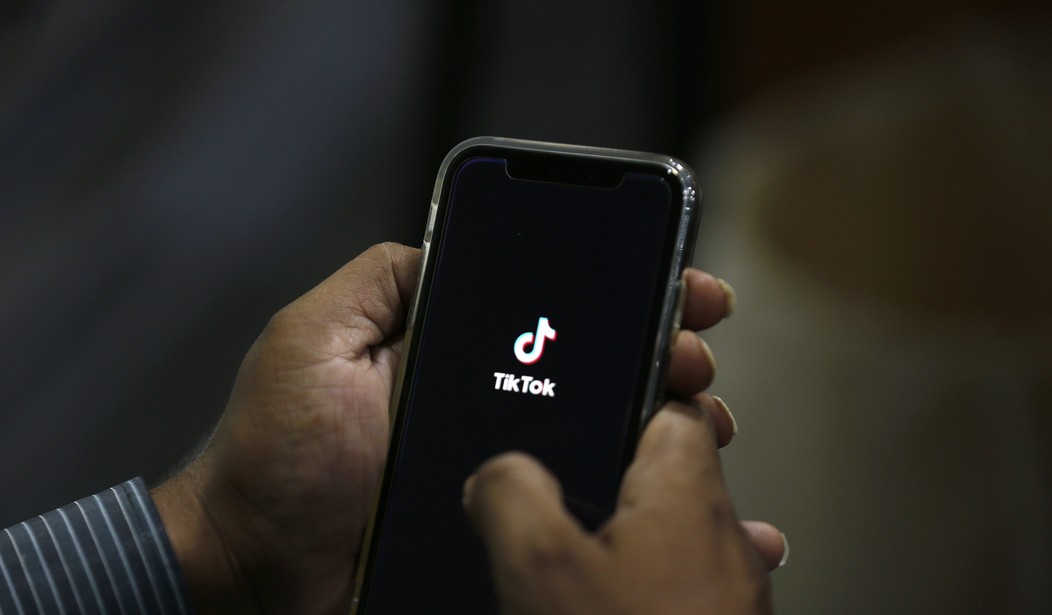Beware whenever Senators rush out to agree, almost unanimously, on a bill. Such measures may pass quickly, but they can be bad news for average Americans.
Consider the current, bipartisan rush to pass legislation to ban the popular social media tool TikTok. That site is full of mindless silly videos, yet the rush to shut it down is mindless dumb politics. Blocking TikTok is one of those terrible ideas that would harm consumers of social media by limiting choice. It would also increase the government’s power to control speech.
That’s not to say that we shouldn’t be careful. Politicians in both parties are right to warn us about the government of communist China, and there are many good reasons to be angry and fearful of Beijing’s military and economic plans. China’s recent embrace of Russia and its own push to expand control over land and markets is a threat to U.S. national security.
Meanwhile, China’s long record of stealing the intellectual property of American creators is still a problem. Despite the problems with the U.S.-China relationship, TikTok is not the Chinese government. Our federal government can’t fight a proxy war on TikTok so lawmakers can pretend they are getting tough on China.
The motivating factor in the debate to ban TikTok is the fear that China is going to gather up the private data of Americans and use it for nefarious purposes.
Of course, Twitter, Facebook, Google and every other app that makes money by collecting user data is doing the same thing. Although a TikTok ban may temporarily expand the market for other (American-based) social media companies, that increase in revenue comes at a high cost, because these private companies are ceding power over the control of speech and commerce to government.
Recommended
My former boss, Sen. Rand Paul (R-KY), just blocked a bill titled the “No TikTok on United States Devices Act” that would prohibit TikTok from operating in the United States and ban commercial activity with TikTok’s parent company, ByteDance. Supporters are also part of the fight to expand antitrust law to hammer “Big Tech.” These big government conservatives want to give the federal government more power to control American companies by giving federal government bureaucrats decision making power over these successful companies. What could go wrong?
The Bill of Rights is not optional. The First Amendment’s right to free speech is implicated in a TikTok ban, but probably not in the way you think. The government of China has no free speech rights in the United States. The Bill of Rights does recognize the natural right of people to express themselves politically, without government retribution or sanction. Millions of Americans are using TikTok to express political thought. If it is shut down, that platform for expression will be eliminated, therefore limiting at least some political speech (along with many unique dance moves).
As Sen. Paul argued on the Senate floor on March 29, 2023: “We should not let fear of communism cause us to ignore our First Amendment protections of free speech. This legislation would require our President to ban TikTok.” Do Americans want President Biden, or any president for that matter, to have the power to limit speech and ban companies that may be based in another nation? This seems like a gateway drug to giving our government the power to tell American social media companies what speech they can and cannot allow. Republicans shouldn’t lead the country down a rabbit hole of censorship and unlimited government by giving liberal elites more power to shut down the economy and limit free speech.
On a more practical level, think about how politically stupid it is for a politician to vote to ban TikTok. About 150 million Americans use the TikTok app. According to the Pew Research Center, nearly 107.7 million valid votes were cast in the 2022 House elections. Census data indicates that 154.6 million voted in the 2020 presidential election and 137.5 in the 2016 election. Those numbers should scare those who want to ban the popular app.
Americans understand the arguments against the use of TikTok. Let’s trust them to do the right thing. The government should allow people to decide themselves if they want to use this app or not knowing the risk of giving information to third parties.
Once the government censors are done banning TikTok, get ready Facebook: you are in the on-deck circle.
Brian Darling is former Counsel and Sr. Communications Director for Sen. Rand Paul (R-KY).

























Join the conversation as a VIP Member